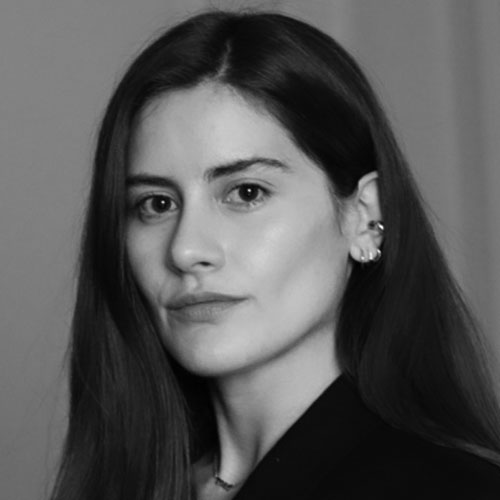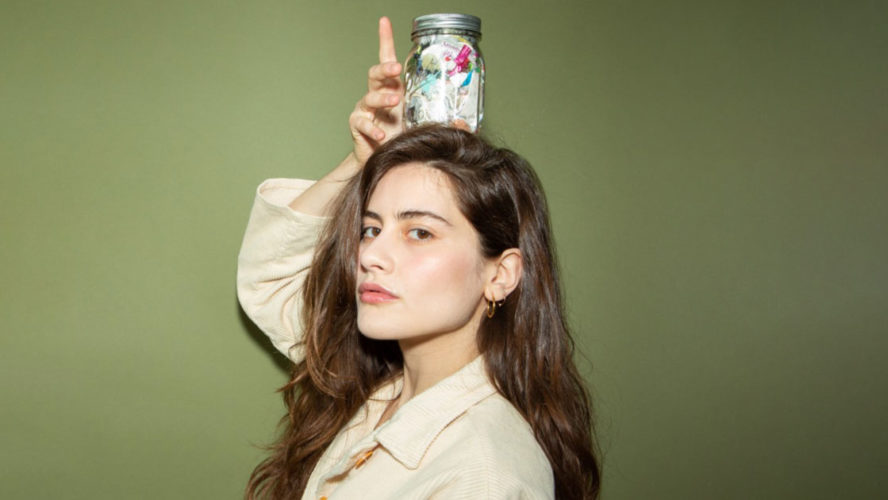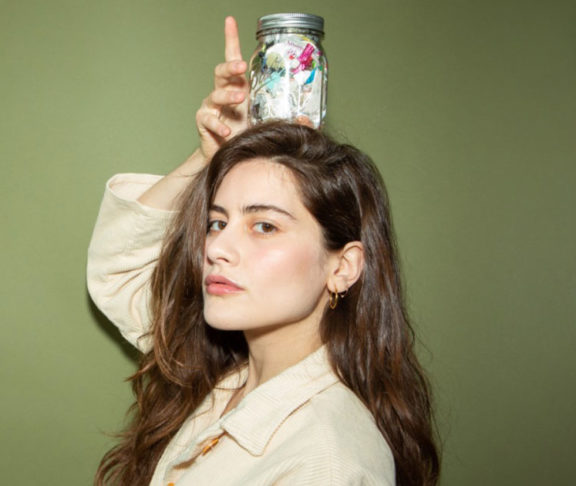Lauren Singer is an environmental activist, author, investor, and influencer, whose Instagram page (@trashisfortossers) has about 350k followers. We asked her about the most exciting developments in sustainability, and what individuals can do to make a difference.

Lauren Singer
Environmental activist, author, investor, influencer — @trashisfortossers
“Doing little things in our everyday lives can significantly reduce the amount of methane we’re generating.”
What does sustainable living mean to you?
I look at and measure myself against what my values are for environmental sustainability, which reflects the state of the world. How dire is the climate crisis? How imminent is the threat of climate change? How can I best adjust my personal lifestyle and goals to reflect a more positive future?
I focus on waste because when you look at the climate crisis, most people focus on how we need to reduce carbon dioxide in the long term. However, in the short term, there’s this gas called methane, which is produced mainly from animal agriculture, natural gas, and landfill waste. If we want to reduce the immediate threat to climate change through methane emissions, we can address those three things.
Doing little things in our everyday lives can significantly reduce the amount of methane we’re generating. I chose that to focus on because it seems like one of the most tangible ways we can have a direct impact on the number of warming gasses that we’re contributing to the planet.
What are some misconceptions you feel people have about living a sustainable life?
I think for a lot of people, it’s hard to know where to start. Because where do you start? I think one of the misconceptions is that individuals can’t make an impact. But we create negative impacts every single day — that is measurable. Making purchasing decisions, and choices about what we throw away or don’t throw away, or compost or don’t, that directly impacts our climate.
I focused on trash, because there are so many different points of action that you can take. And that’s why I started Trash is For Tossers; I wanted to outline a variety so that if you wanted to take action, you could pick one thing that seems easy enough for you and it has a direct and tangible impact on climates. We as individuals make a difference — whether that’s positive or negative depends on our choices.
Prior to starting Trash is For Tossers, what inspired you to make the switch to a zero-waste lifestyle?
I first started to learn about environmental science and climactic systems in academia. I went to grassroots activism to leverage my power the way I knew how at the time, which was protesting. When I felt that that wasn’t powerful enough, I asked myself, “How can I change to align my actions and values better with the world I want to see?”
I started reducing waste to reduce my methane emissions, and have a lower contribution to greenhouse gas emissions. I took individual values and actions and put them into play, whether it was in my original jobs that I had at the Department of Environmental Protection, or starting my two companies, The Simply Co. and Package Free Shop.
Now I have a venture fund that I started with two other women where I invest capital to support and grow businesses at the early stage, addressing climate change. Every single value that I have, I’ve tried to figure out a way to leverage those into building a business or creating something that can have a bigger impact outside of just my individual actions.
Beyond your own personal work, what are new initiatives being brought to light within sustainability that you feel would benefit those inspired to make a change?
What I’m seeing through my work in venture [capitalism] is things that will never reach a consumer — things that they’ll never see — but that they’ll benefit from. All the software, technologies, biotech, and science that goes into making things more efficient, or reducing impact and friction, that’s what I’m really inspired by.
It’s important for people to know that there’s a lot of change happening behind the scenes — you just might not see it right now. Something that’s a bright light for a lot of people is the Inflation Reduction Act and all the infrastructure legislation that’s passed. It’s creating huge amounts of incentive to reduce emissions and advance technology. These incentives will drive technology forward and help reach necessary climate goals.
That makes me hugely optimistic because people were trying to do this before there were any legislative mandates to do so. Now, there’s legislation and financial incentives, which will only supercharge the efforts that have been in the works for such a long time.
Stuff is happening. You might not see it as an individual right now, but I feel really excited to be on the forefront of seeing it as someone who’s now deploying capital through a venture fund.
Last time we spoke, you offered a few tips for small steps we can take toward a zero-waste lifestyle. Do you have any updated tips for those who already have taken your previous advice?
If we’re looking at just waste, composting is still my No. 1, and I think it’s becoming easier. At-home composting through Lomi, Mill, or Vitamix can be used to help reduce food waste sent to landfills.
I’m the biggest supporter of shopping secondhand; with every passing day, it becomes easier with the growth of interest in secondhand, especially for Gen Z. As well as the software and online platforms, and the direct-to-consumer aspect of how easy it is through The RealReal and Poshmark. More than that, is buying less, and not buying things new or used.
That’s on the individual front, and more to my point about methane emissions, which will have more of an importance in the narrative around climate change. If we look at where methane emissions come from, reducing our waste in landfills is a powerful way to do that.
The animal agriculture sector is the largest source of anthropogenic methane emissions. Reducing your consumption of dairy and meat is a great way to pause anthropogenic methane emissions derived from ruminant animals that do enteric fermentation. Not everybody wants to stop eating meat, but if you eat a little bit less, or drink a little bit less milk, or contribute a little bit less to that industry, it makes a difference.
Something that’s cool is companies are making food additives to reduce the amount of methane that animals are producing. One that I love is Alga Biosciences; it’s a seaweed additive that goes into animals’ food that reduces their detectable methane emissions.

